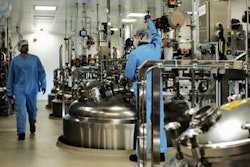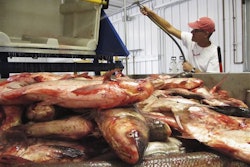A growing number of manufacturing companies are bringing their operations back to the United States and they are discovering that cloud based ERP software can help their core functions become more efficient and cost-effective — ultimately driving greater revenue.
Turning Offshoring into Reshoring
For more than a decade, America’s manufacturing sector painted a grim picture. Between 1998 and 2008, the number of U.S.-based manufacturing plants declined by more than 51,000 plants, about 12.5 percent. The migration of manufacturing to offshore locations became a flood in the first decade of the 21st century as nearly 6 million manufacturing jobs left America for China and other Asian countries. The allure of lower construction and labor costs as well as fewer regulations in these countries proved too attractive for manufacturing firms to resist.
But, it may be surprising to learn that after years of losing manufacturing jobs to other countries, American companies have begun to bring back, or reshore, their manufacturing operations to the United States.
Why is reshoring a growing trend? Companies are finding out that the advantages of offshore manufacturing are no longer quite so compelling. Labor costs in China and elsewhere are rising, and fuel prices are mounting, increasing the cost of shipping while wages in the US have stagnated. Companies are also discovering that U.S.-based manufacturing provides closer proximity to their customers, increased product quality, better protection of intellectual property and reduced regulatory compliance risk.
According to the Boston Consulting Group, one of the world's leading business strategy consulting firms, the base wage in China, as measured in dollars, has risen 17 percent a year. Salaries for manufacturing jobs in the U.S., on the other hand, have increased an average of just 2.3 percent over the past ten years.
Additionally, the increase of natural gas production in the U.S., driven by fracking and other new drilling techniques, has decreased gas prices by 25 percent in the U.S., compared to an increase of 138 percent in China.
The Boston Consulting Group recently conducted a survey of U.S. manufacturing company CEOs in which more than half of those CEOs cited labor costs, proximity to customers and product quality as the main reasons to determine where goods should be manufactured. More than 80 percent of respondents pointed to at least one of these reasons as an important factor. They cited other reasons as well, including transportation costs, access to skilled labor, supply chain lead-time and the ease of doing business.
The rise of online commerce has made local control of supply chains much more important, especially because many U.S. manufacturers are reporting problems with the quality control of goods made in China.
This trend in reshoring is supported by the numbers. Since 2010, more than 200 companies, mostly U.S.-based, have brought offshored production back to America. U.S. factory payrolls have grown for four straight years to a total of about 650,000 jobs. That’s the largest and longest stretch of manufacturing increases in a quarter century.
The list of domestic and foreign companies moving their manufacturing operations to the U.S. reads like a who’s who of well-known corporations. Caterpillar, General Electric, Toyota and Siemens are all choosing to build or expand their facilities in America. In the automobile industry, almost every Asian and European automaker has built assembly plants in the U.S.
A number of U.S. states are taking advantage of reshoring. With its low taxes and high-quality trade schools, Alabama has attracted such companies as European aircraft manufacturer Airbus, Hyundai, Honda and truck manufacturer Navistar. General Electric is reshoring in Kentucky and the company has announced a $1 billion initiative plan to bring new appliance plants to Louisville, Bloomington, Ind. and Decatur, Ala.
However, some states still have a way to go before they are attractive locations for reshoring. For example, Montana’s high utility rates remain an obstacle there, while Wyoming has a high cost of doing business due to increasing costs for industrial and office space. Higher utility costs caused by harsh winters are hurting Vermont’s case for reshoring.
While the American political climate for manufacturing is improving, with several state and local governments competing to offer incentives, political gridlock in Washington continues to worry companies. They remain uncertain about taxes, health care costs and repairs to the nation’s crumbling infrastructure as well as the ability to find enough skilled workers. Certainly, additional investment in the nation’s infrastructure and math and science education will make reshoring more attractive to these companies.
In spite of these obstacles, reshoring has become a reality, aided by technologies such as robotics, automation and cloud based enterprise resource planning (ERP) software.
Cloud Based ERP Solutions Can Help
In order to succeed in bringing manufacturing back to the United States,companies must achieve high levels of efficiencies in all areas of their operation. This is where cloud based ERP comes in.
Enterprise resource planning systems, especially ERP manufacturing software, help companies by providing visibility into every function across many departments. The modular nature of ERP systems lets firms implement only those modules that meet their requirements, allowing for seamless integration of company processes and workflows, improved tracking, security and lower costs all around.
The advent of cloud computing has made ERP for manufacturing even more mission-critical. The cloud provides centralized data storage, the sharing of data-processing tasks and internet-based access to services and resources. The flexibility of the cloud and the speed of deployment make manufacturing systems particularly well suited to cloud based ERP solutions.
Cloud ERP brings core manufacturing tasks together. Cloud based solutions represent every critical function in the manufacturing process, including materials requirements planning (MRP), process manufacturing software, purchase order and inventory software, shop floor software and supply chain management software.
Cloud based solutions such as ERP for manufacturing and ERP for wholesale distribution make it possible for reshoring companies to manage manufacturing, distribution and supply chain operations anywhere and in real time. Manufacturers and distributors can access a single system to coordinate multiple sites and services with centralized visibility across global operations. Organizations can then achieve much greater insight on what is happening or what will happen at each step of the manufacturing, distribution and supply chain processes.
Manufacturing cloud ERP modules represent every step in the manufacturing process to increase efficiencies, control costs and, ultimately, increase revenue. Sales order management software converts customer quotes into orders for products. Purchase order management software generates orders for suppliers. There are cloud ERP modules for production engineering, inventory management, lot and serial control, scheduling and capacity planning, and shop floor control. Material requirements planning (MRP) helps companies plan what to buy/make in time to build products. Manufacturing cost control and project control modules give companies finer control over costs.
Successful reshoring depends on these increased connections and efficiencies made available by cloud ERP. Furthermore, integrating business processes with ERP systems improves productivity of the workforce through ease of use. Data can be entered faster and easier and for more accurate data in real time so that decisions can be made quickly to help drive business growth.
As manufacturers of all sizes learn to take advantageof cloud ERP, they are looking for new ways to take advantage of the scalability and cost reductions available.
Cloud ERP vendors such as Rootstock Software can help manufacturers succeed by providing cloud ERP solutions that are configurable, scalable and adaptable. Organizations looking to reshore know that such systems give them the flexibility they need to accommodate any workflow, implement social collaboration, add new capabilities and quickly address changing requirements. The software provides state-of-the-art manufacturing, distribution and supply chain apps that integrate “out of the box” with native sales and accounting apps.
Companies looking to bring their manufacturing back to America can depend on such cloud ERP vendor unparalleled executive experience in software and established base of installed and implemented cloud customers. It is essential to reshoring to offer a better and more reliable way to plan and execute critical manufacturing tasks, deliver essential information to all parts of the organization and facilitate timely and informed business decision making.
By providing manufacturers and distributors with the control and visibility they need, manufacturing cloud ERP empowers its users to raise the total performance of their manufacturing, distribution and supply chain operations. That is the tool being used by flourishing organizations to create opportunity for growth through successful reshoring.
Pat Garrehy is the Founder, President and CEO for Rootstock Software.























